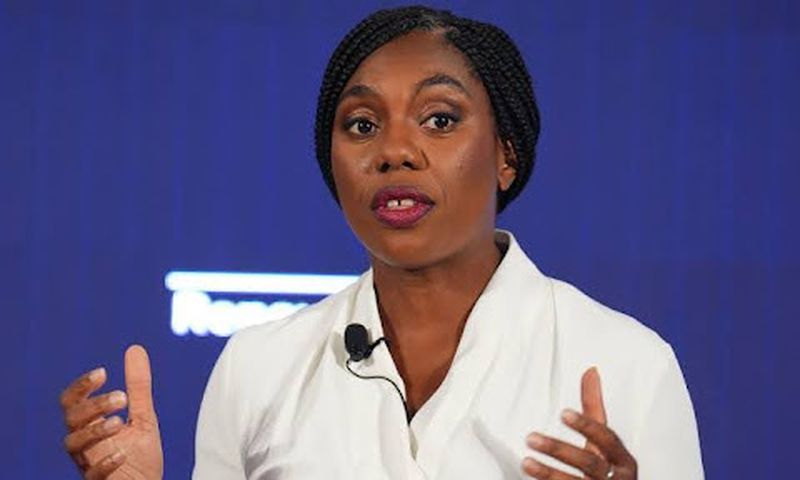Kemi Badenoch Falsely Claims She Can’t Pass Nigerian Citizenship to Her Children Because She’s a Woman

UK Conservative Party leader Kemi Badenoch has stirred a wave of criticism following remarks she made in a recent CNN interview, where she claimed she cannot pass Nigerian citizenship to her children because she is a woman — a statement now being widely challenged as factually incorrect.
Speaking with CNN anchor Fareed Zakaria, Badenoch — who was born in the UK to Nigerian parents — stated, “It’s virtually impossible, for example, to get Nigerian citizenship. I have that citizenship by virtue of my parents. I can’t give it to my children because I’m a woman.”
The comment was made in the context of defending Britain’s immigration policies. Badenoch contrasted the UK’s laws with what she described as “stricter” and “discriminatory” Nigerian immigration rules, suggesting Britain should tighten its own system. “There are many people who come to our country, to the UK, who do things that would not be acceptable in their countries,” she added.
When asked if she would support the establishment of a “mini-Nigeria” in the UK as a means of cultural integration, Badenoch sharply replied, “No. That is not right. Nigerians would not tolerate that.”
However, her comments have since sparked backlash, particularly from legal experts and members of the Nigerian diaspora. Many have pointed out that her claim about gender-based restrictions in Nigeria’s citizenship law is inaccurate.
According to Section 25(1)(c) of the 1999 Constitution of the Federal Republic of Nigeria, any person born outside Nigeria to either a Nigerian father or mother is entitled to Nigerian citizenship by birth. Legal analysts say the law makes no distinction based on the parent’s gender.
Badenoch, 45, who has become a key figure in British conservative politics, was born in Wimbledon in 1980 but spent her early years in Lagos before returning to the UK at 16. She is married to Hamish Badenoch, a Scottish banker, and the couple has three children.
The lawmaker is well-known for her hardline views on immigration. Earlier this year, she pledged to make it “a lot harder” for immigrants to acquire British citizenship, and has frequently drawn criticism from human rights groups over her rhetoric.
Her recent comments have reignited debate over identity politics, integration, and dual nationality in the UK. Some critics argue that Badenoch’s repeated criticism of multiculturalism and foreign nationals undermines the very diversity she represents.








